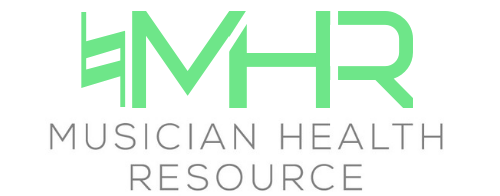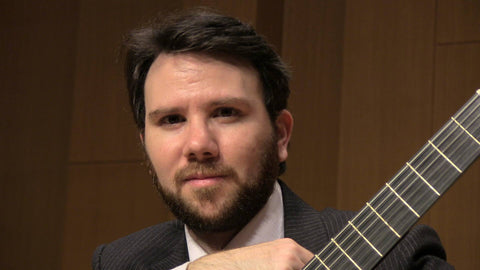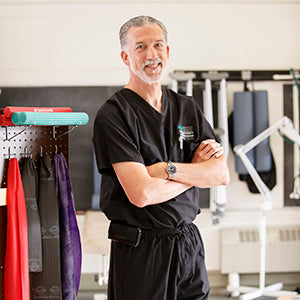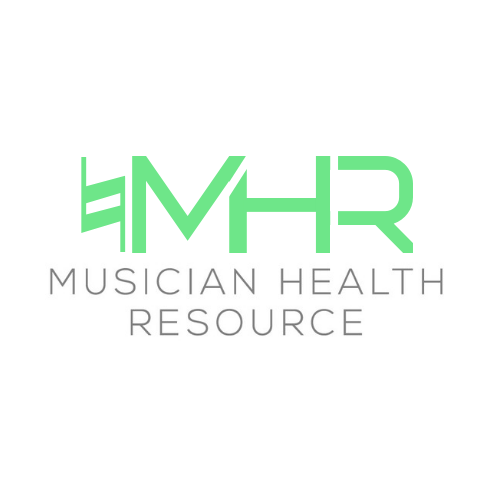Today's post will be a brief departure from my usual research-based Wednesday posts. For the last few weeks I've been struggling with an intensified version of my usual chronic back pain that has lead to some very acute muscle seizing. Rather than spending yesterday researching, writing and editing tomorrow's podcast episode, I spent the day in a sports massage, lying on my back on the floor, icing and taking epsom salt baths.
A huge motivation for me in writing this blog has been my own need to find answers for the pain I often experience, not my own expertise. In fact, I put off tackling this endeavor because I believed that I needed to be a perfect role-model for fitness before sharing with others.
But this couldn't be further from the truth. If 84% of musicians have experienced pain that has interfered with their playing ability then the likelihood of me being alone is pretty slim. In fact, if you're reading this, it's probably because you relate to this. What we need is more people standing together, openly acknowledging that pain is a present and persistent problem if we're going to create a demand for the resources we need to cope with it.
So, it's time to put my money where my mouth is. Beginning next week, I'll be committing to regular massage therapy, working on a "from the ground up" yoga program starting with the balancing of my feet and committing to working with physicians who can help put together an exercise and treatment program that keeps me from potential re-injury.
And, of course, I'll be sharing all of my findings with you.
The British Journal of Sports Medicine did a wonderful podcast interview speaking with Professor Kay Crossley of La Trobe University in Melbourne, Australia on physiotherapy. Professor Crossley spoke about the use of exercise as treatment and the almost nonexistent rate of relapse among patients who commit to exercise therapy for one full year.
So my goal is one year to change, and hopefully save, my body from recurring pain. If I'm willing to commit to $100 to take a cello lesson when I need it, why am so unwilling to commit $100 to a therapist when I very clearly need it? At 31 years old, I consider myself still young but aware of the reality that my age numbers are not going to get any smaller. From now on my age will start with a "3" until the day that it starts with a "4" and so on.
The last few months have been incredibly frustrating. I've been sidelined with lingering results from a bout with heat exhaustion. My body temperature spent a week climbing up over 100 degrees, some days getting as high as 103.9! This caused a rewiring effect through my nervous system that meant I dehydrated faster, processed electrolytes less effectively and had to cut down on my cardio activities greatly.
The good news is, I listened to my body and rested! And some wonderful things came out of it like better sleep and hydration habits, a chance to unwind bad pronation and relax overused muscles and more attention to diet. The bad news is, I've lost a lot of my muscle mass and endurance meaning that my body is more likely to move out of alignment when playing the cello resulting in a return of my back pain.
To practice what I preach in training more like an athlete being the most effective way to achieve a long-lasting music career, it's clearly time for me to move beyond sharing information and the stories of others and to take some ownership in my own. The best thing about creating this resource has been the wealth of information I've been exposed to. But information alone won't heal me, it's time to do the work!
I hope some of you will join me in committing to these ideas and activities. Feel free to share with me as much or as little as you like and I encourage you to find another musician, coach, teacher or friend to hold you accountable and encourage you along the way. Pain is personal. Misery, however, is optional. When we hold in our pain, believing we're the only ones experiencing it, that's when we begin to encounter mental difficulties and spiraling physical manifestations.
It is possible to overcome pain and physical limitations and to enjoy a long-lasting and injury-free music career. Learn the tools you need by training like an athlete to play like a musician.
Less pain and more music!
Karen








